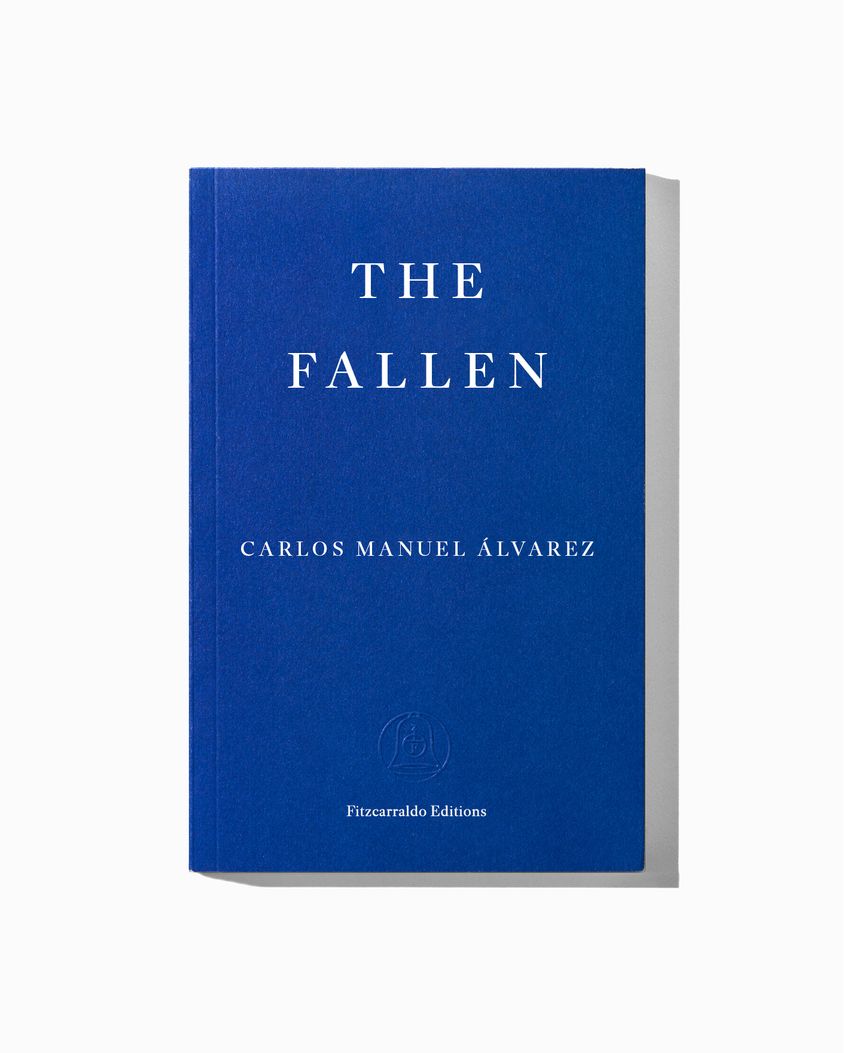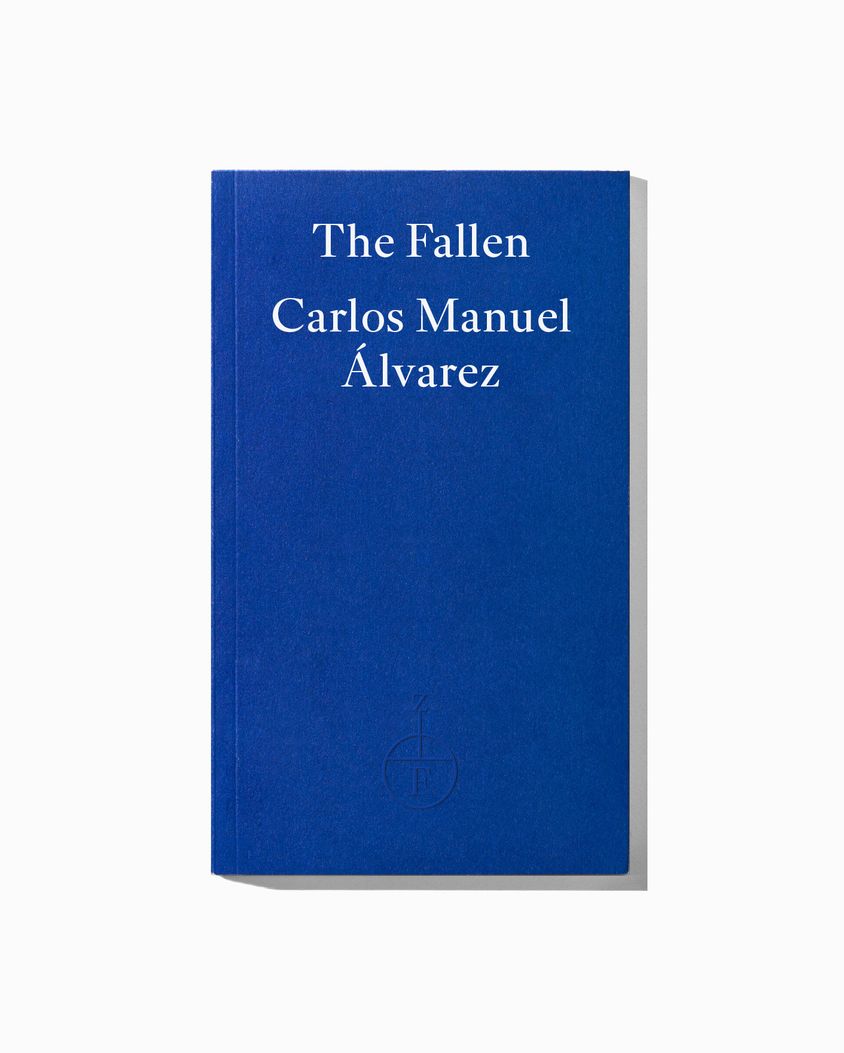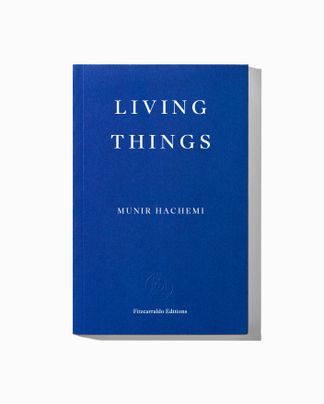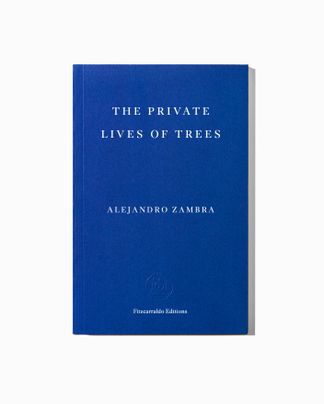A powerful, unsettling portrait of ordinary family life in Cuba, Carlos Manuel Álvarez’s debut novel The Fallen is a masterful portrayal of a society in free fall. Diego, the son, is disillusioned and bitter about the limited freedoms his country offers him. Mariana, the mother, is unwell and forced to relinquish her control over the home to her daughter, Maria, who has left school and is working as a chambermaid in one of the state-owned tourist hotels. The father, Armando, is a committed revolutionary who is sickened by the corruption he perceives all around him. In meticulously charting the disintegration of a family, The Fallen offers a poignant reflection on contemporary Cuba and the clash of the ardent idealism of the old guard with the jaded pragmatism of the young.
The Fallen
Translated by Frank Wynne
French paperback with flaps, 136 pages | Paperback, 136 pages
Published 4 September 2019 (UK) | Published by Graywolf Press in North America in Spring 2020
The Fallen
Translated by Frank Wynne
THE SON
I call my mother on the phone to see if she’s had a fall and she says no. We are silent for a moment. I know how things are at this time of day. She’ll be worried that she still has to put the lid on the simmering frijoles, frustrated that the trash can is full and no-one’s taken the trouble to empty it, sad because the old wooden window frames in the bedroom will carry on rotting for all eternity.
I’m fine, hijo, honestly, she says. She doesn’t feel ill, she hasn’t had a dizzy spell and she remembered to take her pills on time. From the ceiling hangs the yellow light of an incandescent bulb. The glare melts us, the soldiers, dissolves the broken concrete columns, the stone benches, the rusty railings and the roof gutter, sending us eddying, for a moment, into the gullet of night. I say goodbye, hang up the phone, leave the sentry officer’s post and walk back to the dormitory dragging my feet, with my boots unlaced. My shirt’s untucked, the shoulder strap of my zambrán belt digging into my neck.
They came looking for me at home a few months ago. Military service is obligatory at eighteen, but there are ways of getting out of it. In the barrio where I live, some guys dodge it with the help of their families, who fake medical certificates for them with I don’t know what congenital disease, or bribe the admissions board. If I had a father who was reasonable, I could have got out of this shit too, but no-one in my house dares to talk about bribes or circumventing the law. Armando told me he was proud that I was doing my duty, just like he did back in the day. I kept my mouth shut and gave him a contemptuous sneer. Armando didn’t even notice. My mother did.
I can’t get that moment out of my head – in fact it seems I don’t want to. It’s like a fly you shoo away that comes back and lands again and again. I don’t have much time to rest now before my sentry duty. The stupid notion that my mother might have had a fall has cost me thirty, maybe forty minutes, who knows. It’s not just the time it takes to walk from the barracks to the sentry post. There’s also the time between the moment when the thought first occurs to you and when you decide to act on it.
You want to go back to sleep but you know you won’t be able to; the raveled threads of sleep are like reeds you’re trying to cling to. Wakefulness is pulling at you, sweeping you downstream. Your eyes are still closed, the other soldiers are still sleeping, and you refuse to believe that you’re already awake – for a moment you try to convince yourself that you’re still asleep and simply dreaming that you’re waking up. And yet, something beyond your control has rattled into life.
You open the wooden dormitory door as cautiously as possible so that the hinges do not creak. You have no desire to wake anyone, to have boots thrown at you, you’ve already had your share of fights. The dorm is a room of four or five square meters in which everyone is both friend and enemy to each other, and friend and enemy to himself.
At 10.30 p.m. insects are fluttering around the bare yellow bulb on the quad, a background hum that grows louder as the night wears on. Anything that breaks the silence clearly benefits the soldier and his mental health. You walk along the hall, your gaze sliding off things, seeing nothing in particular, as though the objects, forms and concepts that make up the world refuse to be observed. You come to the sentry post, reach through the double window behind the rusty iron railing and pick up the desk phone.
The officer of the watch is asleep, a big-hearted captain who has come down in the world, like all the lieutenants or captains or lieutenant-colonels that make up this military unit, filled with alcoholics who wasted their lives hoping for and preparing for a war that never came, or that came in a different form, crawled inside them and gnawed away at them from the inside.
You dial the number of your house, recognize your mother’s voice, decide to speak in a normal tone, and you mother answers normally. Then you fall silent for a moment and go back to your dormitory. Your shirt untucked, your boots unlaced, your zambrán belt digging into your neck. It is going to take you twice as long to get to sleep again. You don’t know why your mother sometimes talks as if she were mentally retarded.
You tell yourself it’s the disease, but what does that mean? You tolerate this woman who sometimes takes over the body of the mother you know and who you go on calling mother even when there is nothing left of her that bears the slightest resemblance to the mother you knew, except, maybe, certain physical traits, and not even that, because, from what they say, in the ugliness that follows the falls, your mother’s lucid gaze is replaced by a vague, trancelike stare; her mouth, usually filled with comments and remarks becomes dry and twisted, the lips curl into a strange rictus; the skin, warm and pulsating like the skin of all mothers, becomes a pale, withered hide, and her lithe, hyperkinetic body becomes a slow, misshapen mass, flat, motionless, affording no shelter.
There is a little less than an hour before your watch. You hear the limping beat of your heart just below your ear, as though your heart were in the pillow, a toad hiding in the pillowcase. It is an uncomfortable throbbing, but it is the first sign that you are falling back to sleep: the ear turns and begins to listen inwardly. Then you notice something vague, like the pain in your joints becoming a pleasant ache.
You do not try to cling to anything, you simply let yourself be carried by the current, like a broken body, until you get caught in a clump of reeds, or some whirlpool sucks you under, or you wash up on some sandbank, and then your last thought is that now you are going to sleep and that this, the fact that you are going to sleep now, is the last thought that you will have for now, that afterwards there will be nothing left inside your head, and afterwards there is nothing.
(…)
Morning Star Books of the Year 2020
‘A beautiful and painful novel that demonstrates the power of fiction to pursue the unutterable.’
— Alejandro Zambra, author of Multiple Choice
‘In a dysfunctional environment, deception invades private family life. The lines between truths and lies are blurred. In a poetic telling, this short novel explores the human capacity to love and to hurt.’
— Irish Times
‘The Fallen is the story of a family; not a romanticized saga, but a tale of unconditional love and friendship. Through careful and subtle prose, the strain and suffering in every voice emerges loud and clear. Carlos Manuel Álvarez has painted a powerful, burning image of illness, isolation and harrowing rancour.’
— Laila Obeidat, the London Magazine
‘Álvarez does a neat job in this very short but nutritious novel of establishing the personalities of his characters firmly enough that it comes as a real shock when he upends our expectations of how they might behave.’
— Jake Kerridge, the Telegraph
‘A war foretold that never takes place. A death foretold that never takes place. And in the middle of this is the inevitable collapse of a family and a country. The Fallen is a subtle, intelligent and profoundly moving novel which sketches, in elegant and thoughtful prose, a rarely seen Cuban landscape.’
— Alia Trabucco Zerán, author of The Remainder
‘In chapters which alternate between the perspectives of the four family members, Álvarez slowly and cleverly builds up a picture of a family unit on the brink of collapse.’
— Roger Cox, The Scotsman
‘The best in Latin American literature is here: with the precocious skill of someone who is a paragon of narrative resources and sensitivity, Carlos Manuel Álvarez vividly portrays the only identity that really matters: not national, but human. The Fallen is a museum of solitude and of the cracks separating our inner world from the one we live in and from those with whom we coexist.’
— Emiliano Monge, author of Among the Lost
‘In The Fallen every voice has its own music of sadness, its own rhythms of isolation, its own lexicon of defeat. This novel is a subtle masterpiece.’
— Juan Cárdenas, El PaÍs
‘[A] remarkable novel … The Fallen is not a frontal and explicit critic of the Cuban regime – it is more interested in questioning how the ideology of a big project affects a family’s daily life, how the daily miseries manage to reveal the social “truth” of the regime.’
— Edmundo Paz Soldán, La Tercera
‘His prose is supremely elegant.’
— Leila Guerriero, author of Zona de Obras
‘A compelling narrative of a family falling apart, told with love and compassion.’
— The Morning Star
—
—
Carlos Manuel Álvarez is the author of The Fallen and The Tribe, and has written for the New York Times, El País and the Washington Post. He was selected as one of the twenty best Latin American writers born in the 1980s at the Guadalajara Book Fair; he was included in the Bogotá39 list of the best Latin American writers under 40; and he was chosen by a panel of judges for inclusion in Granta’s second Best Young Spanish-Language Novelists issue. He is the recipient of the Anagrama Chronicle Prize for Los Intrusos and the Prix Carbet de la Caraïbe et du Tout-Monde for the French translation of his novel The Fallen.
Frank Wynne has translated works by authors including Michel Houellebecq, Patrick Modiano, Virginie Despentes, Jean-Baptiste Del Amo, Javier Cercas and Almudena Grandes. His work has earned various awards, including the IMPAC Prize (2002), the Independent Foreign Fiction Prize (2005), the Scott Moncrieff Prize (2008, 2016) and the Premio Valle Inclán.






